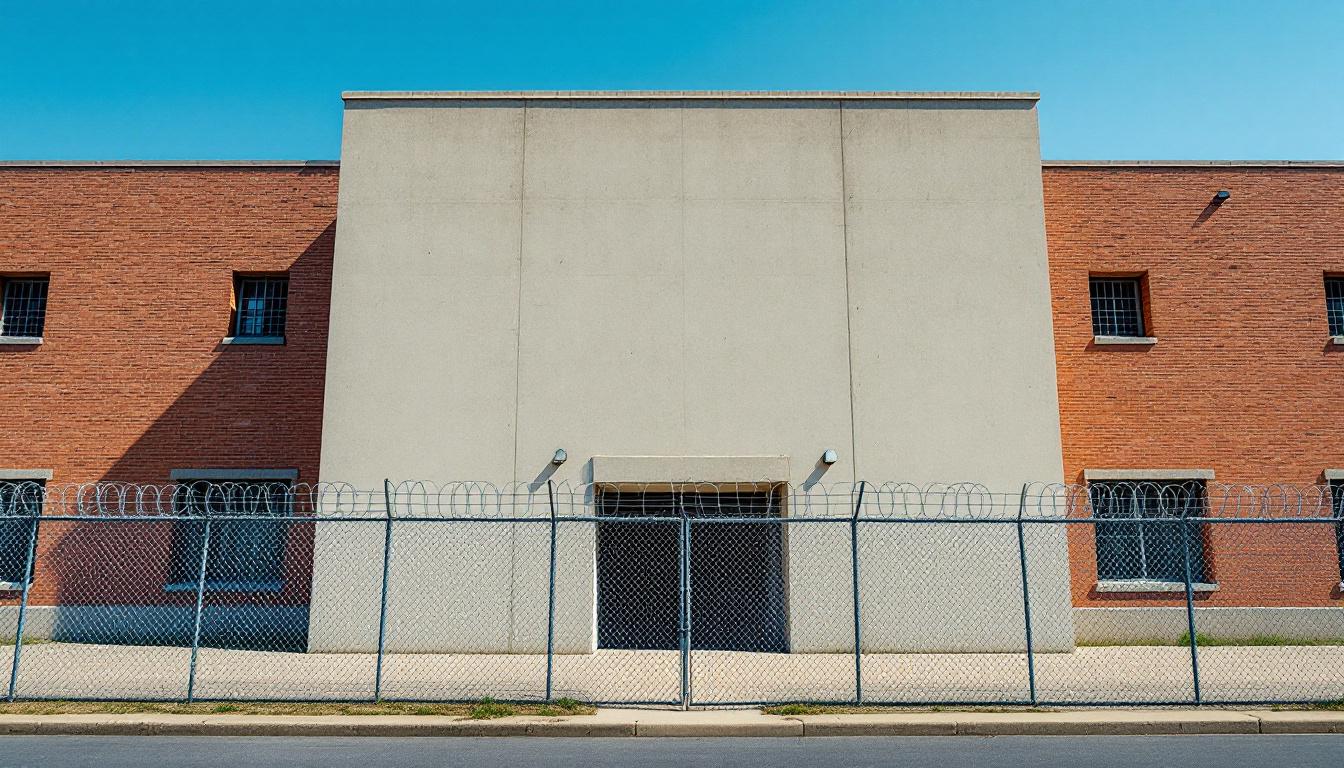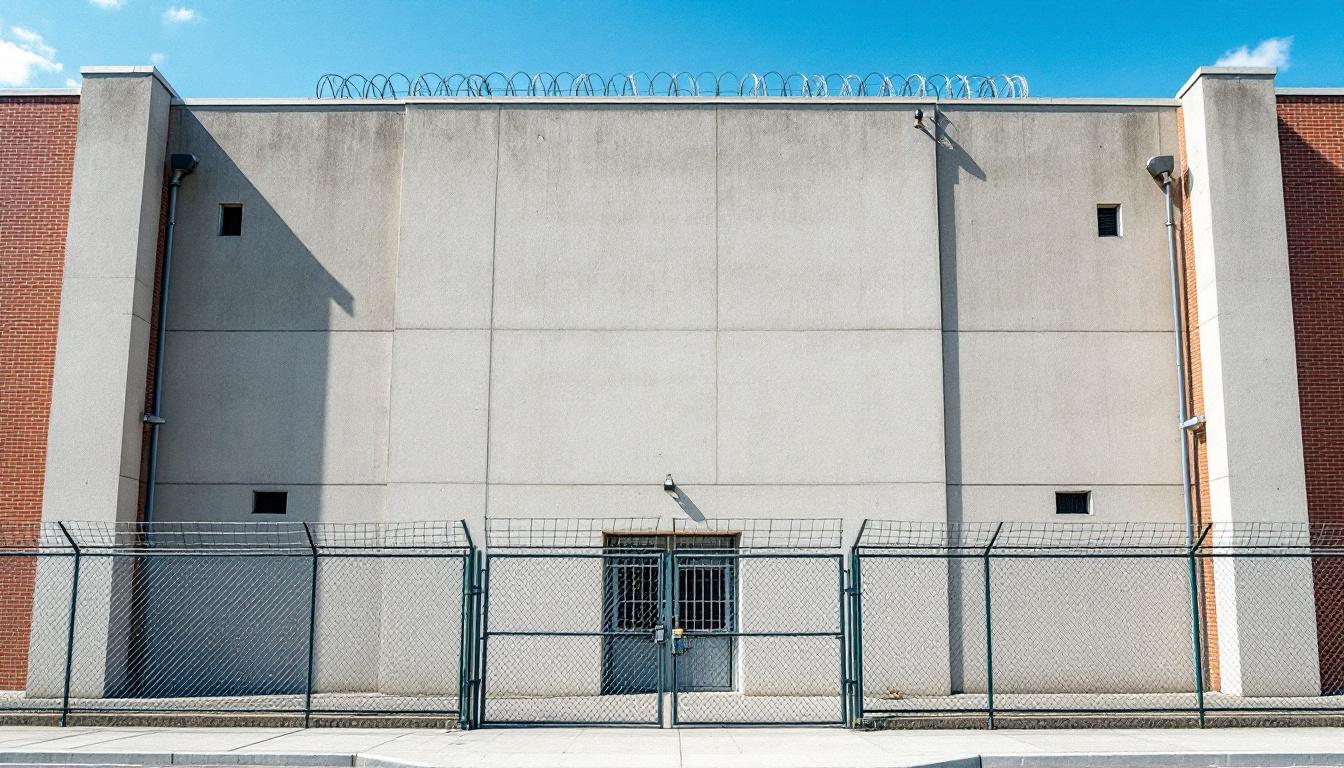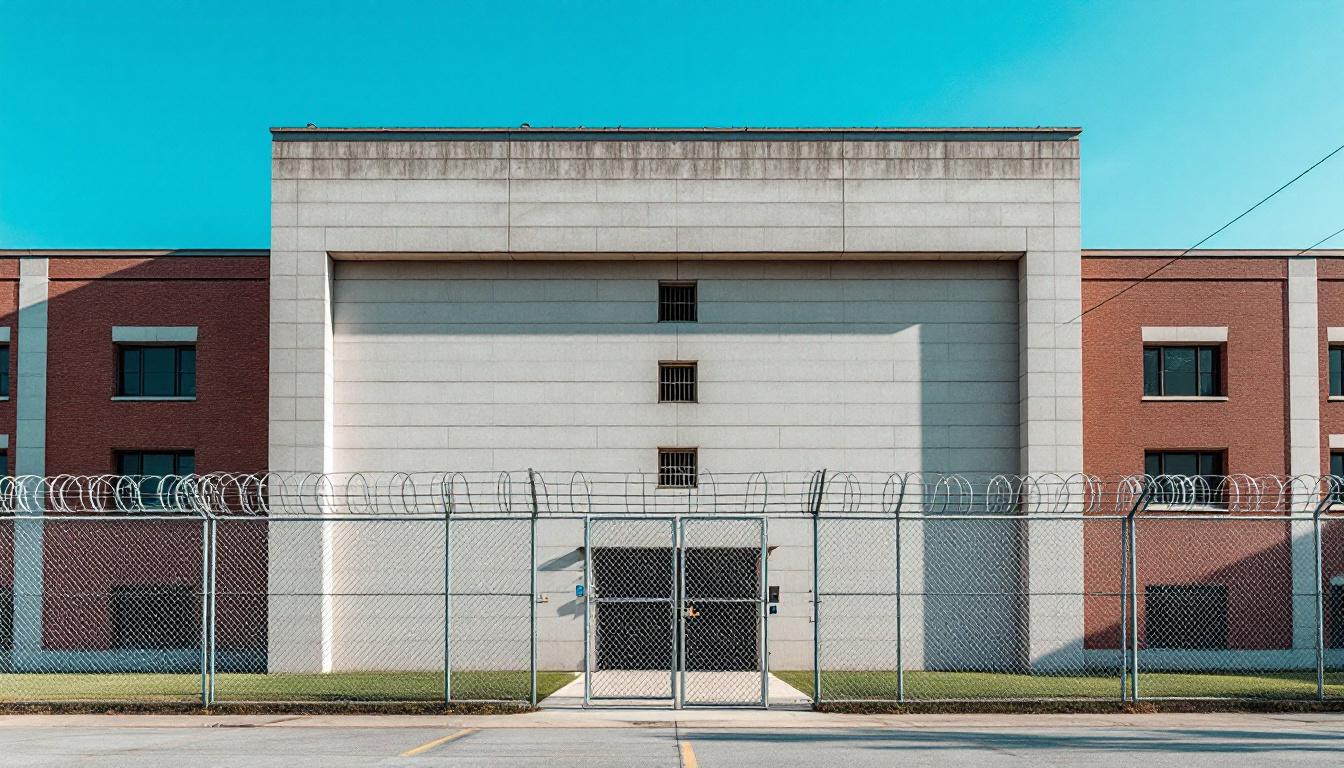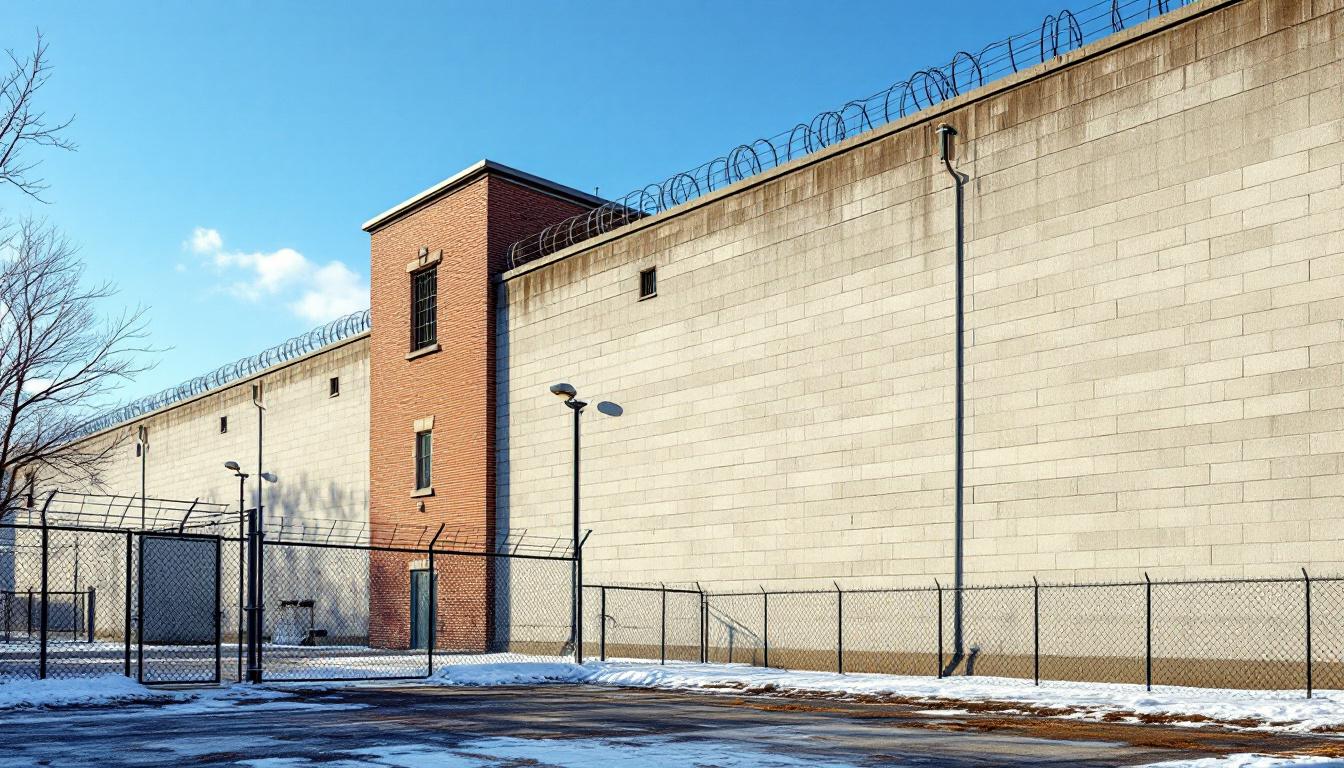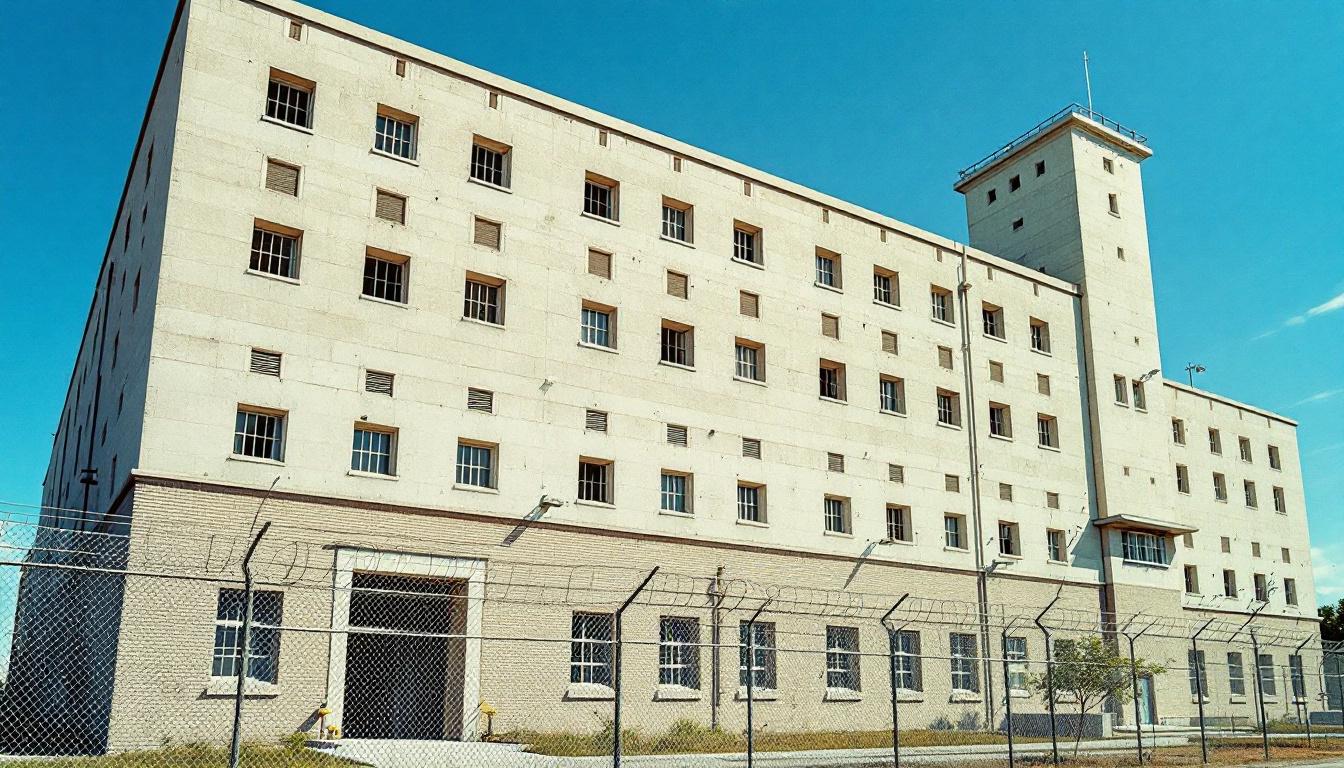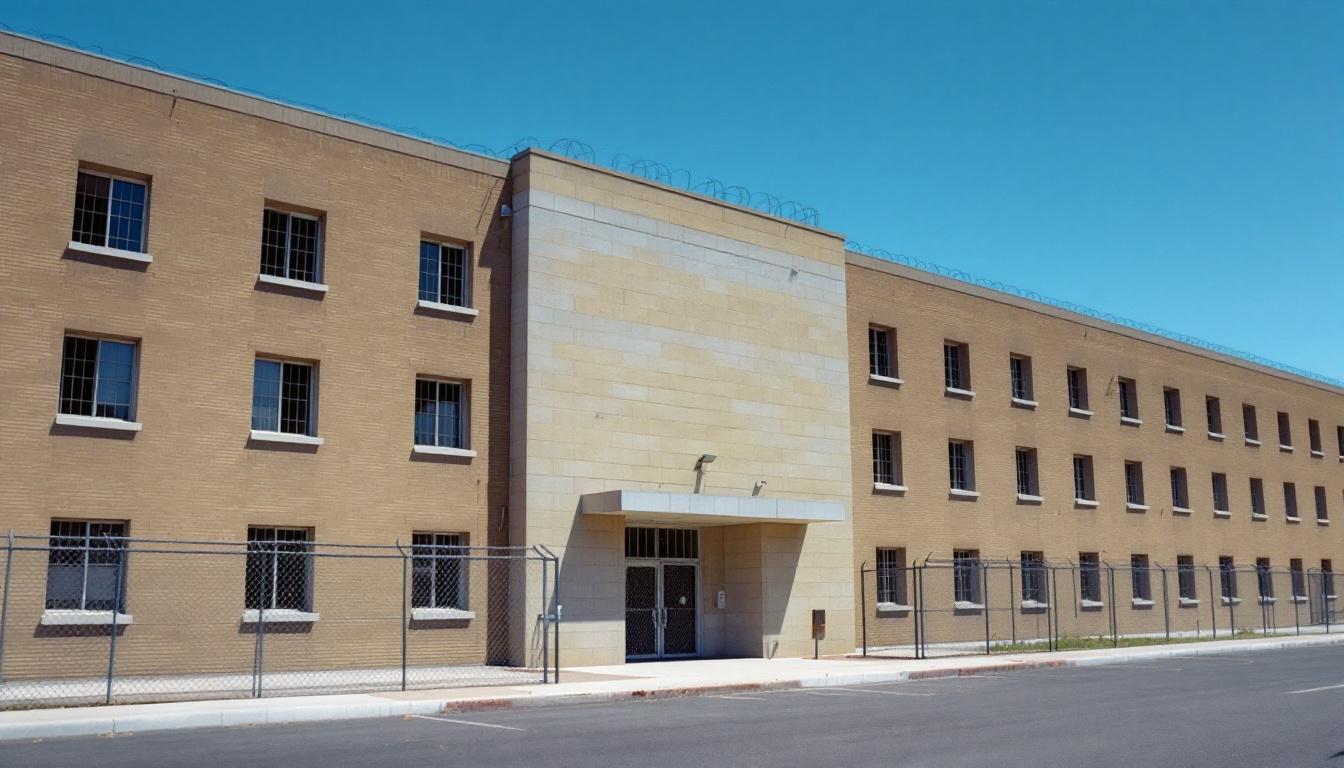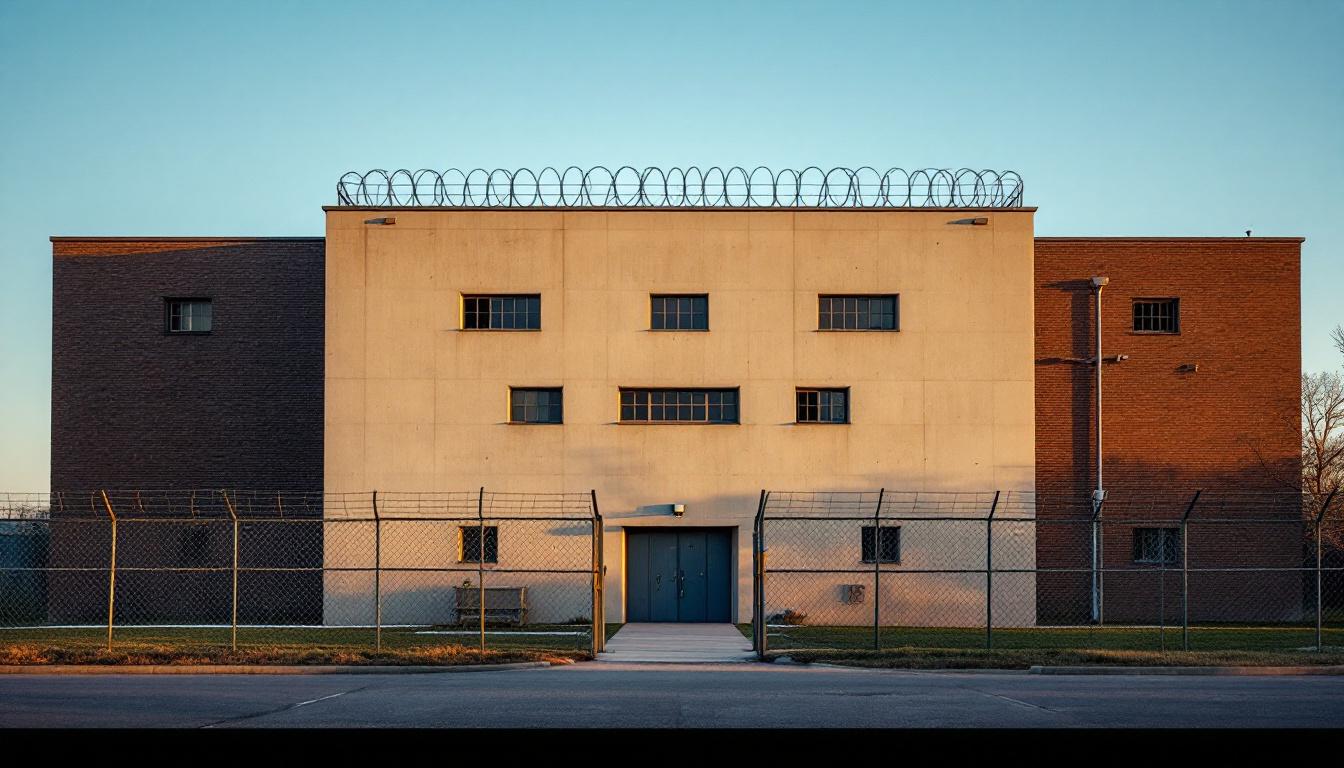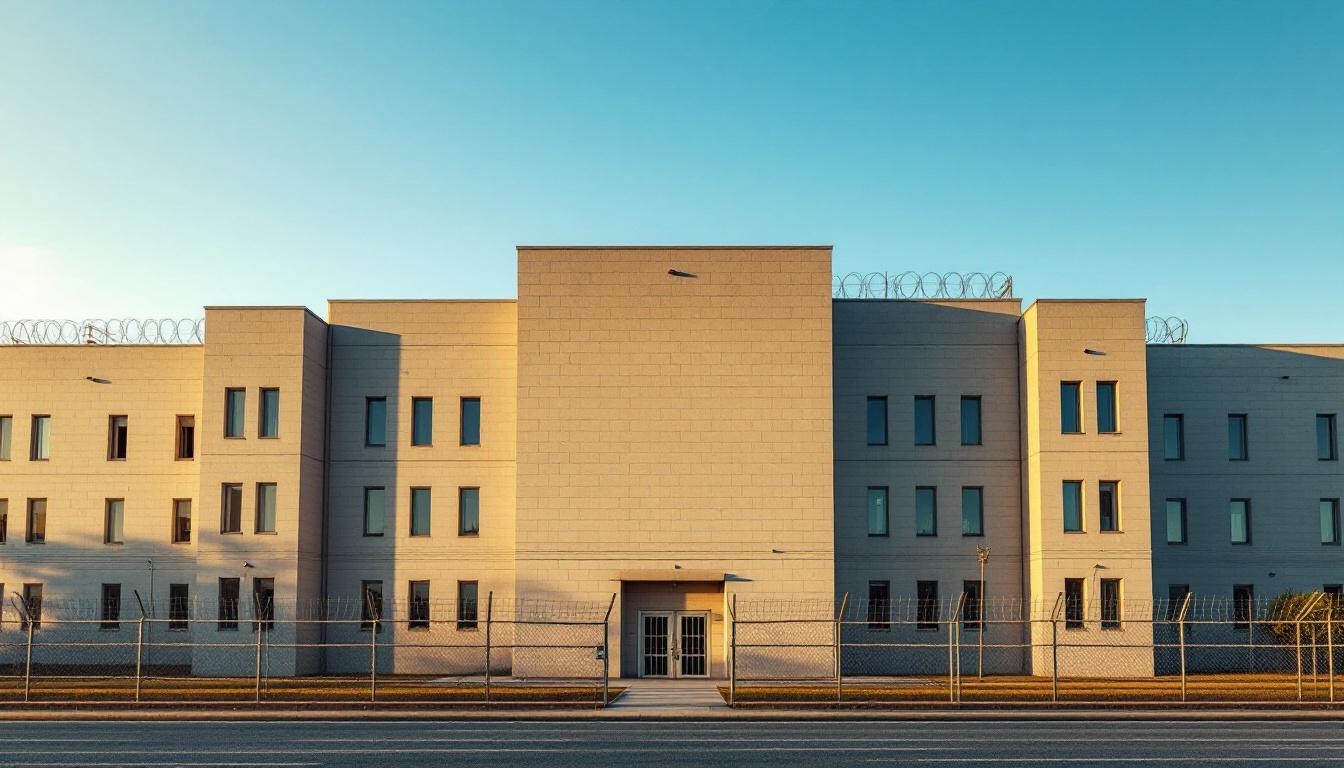
Quick Navigation
How to contact an inmate at Whitman County Jail
This comprehensive guide will walk you through how to connect with an inmate at Whitman County Jail. Follow the steps below to find an inmate and send letters and photos:
- Search for the inmate using our search tool below
- Create your account or log in to Penmate
- Write your message (up to 6,000 characters)
- Send instantly - inmates receive printed copies daily
Find an Inmate
Search for an inmate to start communicating today
Tip: You can search by first name, last name, or inmate ID number
To contact a person at Whitman County Jail start by searching for the person on the official facility website. Perform a search by following these steps:
- Step 1: Enter their first name and last name into the search form and click "Search"
- Step 2: Locate their inmate record
- Step 3: Write down their Inmate ID and any housing information provided
Important! Be sure to enter the person's full name. Nicknames should not be used.
How to Send Messages to Inmates

You can use your phone or computer to send emails, letters, and photos to an inmate. Messages are sent electronically to inmate tablets or kiosks at the facility. If you would like to send a message, start by searching for an inmate at Whitman County Jail.
Sending Photos and Postcards

A great way to send love and support to a loved one at Whitman County Jail is to send photos and postcards. It only takes a few minutes to send photos from your phone and it makes a huge difference. You can also mail postcards with words of support and inspiration, or design your own postcard for special moments like birthdays and holidays.
Important! Be sure not to send any explicit photos or they may not be approved by the facility. You can also use a photo printing app like Penmate to make sure your photos are printed at the correct size (4x6 or 3x5) and are mailed according to the rules and regulations of Whitman County Jail.
Frequently asked questions about Whitman County Jail
-
How long does it take to deliver a message?
If you're sending an email message your letter is usually delivered within 24-48 hours. For messages sent via mail you should expect delivery within 3-7 days. All messages will need be approved by Whitman County Jail.
-
How much does it cost to send a message to Whitman County Jail?
You can send a message free using your phone or mail a message via USPS for the price of a $0.60 stamp and envelope. You can also purchase credits or e-stamps from services starting at $1.99.
-
What services can I use to contact an inmate at Whitman County Jail?
Penmate
You can use Penmate to send letters and photos to an inmate from your phone. It's an easy way to stay in touch during your loved one's incarceration. Use the inmate locator to find an inmate's location and contact information, then you can send messages within a few minutes.
Securus messaging
Securus may be another option for communicating with an inmate at Whitman County Jail. You can create a friends and family account and purchase credits to send messages. All messages will be reviewed and must be approved by the facility.
JPay
Some county jails and state prisons may support sending messages with JPay. You must register an account with the system, find your loved one, and purchase stamps to send messages. For some locations you can also attach photos.
Smart Jail Mail
You may also check if Smart Jail Mail is available at Whitman County Jail. Smart Jail Mail is operated by Smart Communications and has contracted with some state and county jails. After purchasing credits, your messages and photos are sent to the facility, printed out, and then handed out to your loved one.
-
What is the mailing address of Whitman County Jail?
Mailing address:
Whitman County Jail
411 N Mill St
Colfax, WA 99111
Phone: (509) 397-5585Business hours:
- Monday: Open 24 hours
- Tuesday: Open 24 hours
- Wednesday: Open 24 hours
- Thursday: Open 24 hours
- Friday: Open 24 hours
- Saturday: Open 24 hours
- Sunday: Open 24 hours
-
What are the visiting hours at Whitman County Jail?
Visiting hours at Whitman County Jail vary by housing unit and security level. Generally, visits are scheduled on weekends and holidays, with some facilities offering weekday visits. Contact the facility directly at (509) 397-5585 or check their website for the current visiting schedule. Visits typically last 30-60 minutes and must be scheduled in advance.
-
What items are prohibited when sending mail to Whitman County Jail?
Prohibited items typically include: cash, personal checks, stamps, stickers, glitter, glue, tape, staples, paperclips, polaroid photos, musical or blank greeting cards, hardcover books, magazines with staples, and any items containing metal or electronics. Only send letters on plain white paper with blue or black ink. Photos must be printed on regular photo paper (no Polaroids). Always check with Whitman County Jail for their specific mail policies.
-
How do I send money to an inmate at Whitman County Jail?
You can send money to an inmate at Whitman County Jail through several methods: 1) Online using JPay, Access Corrections, or the facility's approved vendor, 2) Money orders mailed directly to the facility with the inmate's name and ID number, 3) Kiosks located in the facility lobby, or 4) Over the phone using a credit or debit card. Fees vary by method, typically ranging from $2.95 to $11.95 per transaction.
-
Can I schedule a video visit with an inmate at Whitman County Jail?
Many facilities now offer video visitation as an alternative to in-person visits. At Whitman County Jail, video visits may be available through services like Penmate, Securus Video Connect, GTL, or ICSolutions. Video visits typically cost $10-20 for 20-30 minutes and must be scheduled in advance. You'll need a computer or smartphone with a camera and reliable internet connection. Contact the facility for their specific video visitation policies and approved vendors.
-
What identification do I need to visit an inmate at Whitman County Jail?
All visitors must present valid government-issued photo identification such as a driver's license, state ID, passport, or military ID. Minors must be accompanied by a parent or legal guardian who can provide the minor's birth certificate. Some facilities require visitors to be on the inmate's approved visitation list, which may require a background check. Contact Whitman County Jail for specific ID requirements and visitor approval procedures.
-
How can I find out an inmate's release date?
To find an inmate's release date at Whitman County Jail, you can: 1) Use the online inmate search tool if available, 2) Call the facility's records department, 3) Contact the inmate's case manager or counselor, or 4) Have the inmate provide this information during a call or visit. For privacy reasons, some facilities only release this information to immediate family members.
Facility Overview
Official Website

About Whitman County Jail
Nestled in the rolling hills of the Palouse region, Colfax serves as home to the Whitman County Jail, WA, where a commitment to meaningful rehabilitation intersects with the practical realities of county-level corrections. This WA correctional facility operates with an understanding that effective incarceration extends far beyond secure housing, embracing instead a comprehensive approach that recognizes each individual's potential for positive change. The facility typically maintains strong connections with local organizations, faith-based groups, and educational institutions throughout the region, creating pathways for residents services that may include substance abuse counseling, educational opportunities, and workforce development initiatives.
The operational philosophy centers on preparing individuals for successful community reintegration while ensuring public safety remains the paramount concern. Staff members generally work to connect residents with resources that address underlying issues contributing to criminal behavior, whether through mental health support, addiction treatment referrals, or basic life skills development. The county jail often collaborates with regional service providers to offer programming that may encompass everything from anger management workshops to vocational training opportunities, though specific offerings typically vary based on available resources and community partnerships.
Within Washington's broader correctional landscape, this facility serves as a crucial component of the local justice system, housing individuals awaiting trial as well as those serving shorter sentences. The Pacific Northwest's emphasis on rehabilitation-focused approaches often influences the facility's programming decisions, with staff typically working to maintain family connections and community ties that prove essential for successful reentry. Through partnerships with area organizations, the facility may provide access to educational materials, religious services, and counseling support designed to address the complex factors that contribute to criminal behavior.
Programs & Services
Comprehensive rehabilitation initiatives at Whitman County Jail emphasize skill development and personal growth through evidence-based programming designed to address the multifaceted needs of residents. The facility's approach recognizes that successful reintegration requires addressing educational deficits, mental health challenges, and employment readiness simultaneously. This holistic philosophy guides the implementation of various initiatives that may deliver structured learning opportunities while fostering personal accountability and positive behavioral changes among participants.
Educational services typically form the cornerstone of the facility's programming, often including basic literacy instruction, GED preparation, and computer skills training that prepare residents for post-release success. Additionally, vocational programs may deliver hands-on training in practical trades such as food service, maintenance, and custodial skills, providing residents with marketable abilities upon their return to the community. Work programs within the facility often complement these educational efforts by allowing residents to apply newly acquired skills while contributing to facility operations, thereby developing both technical competencies and workplace habits essential for sustained employment.
Therapeutic initiatives focus on addressing underlying issues that may have contributed to criminal behavior, with mental health counseling services typically available to residents experiencing depression, anxiety, or substance-related challenges. Additionally, stress management programs often include group sessions and individual coaching designed to help participants develop healthy coping mechanisms and emotional regulation strategies. These support services may deliver cognitive-behavioral interventions and life skills training that equip residents with tools necessary for making positive decisions and maintaining stability in their personal relationships and community involvement following release.
Daily Life & Visitation
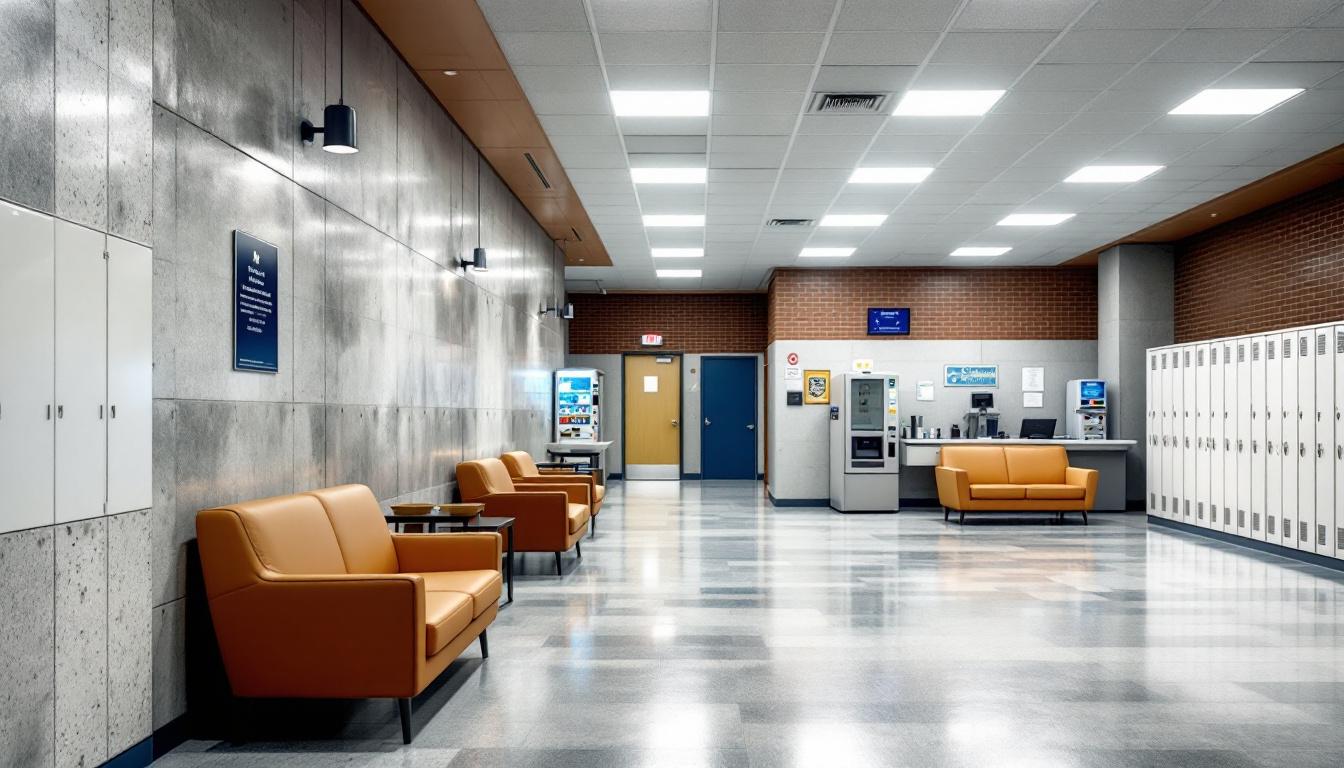
The rhythmic sound of morning announcements currently marks the beginning of each day, as residents follow a carefully structured schedule that continues to provide predictability in an otherwise uncertain environment. Wake-up calls typically occur in the early morning hours, followed by personal hygiene time and preparation for the day ahead. Meal times generally anchor the daily routine, with breakfast, lunch, and dinner served at consistent intervals that help residents maintain a sense of normalcy. Count times occur regularly throughout the day, ensuring accountability while allowing staff to maintain security protocols that keep everyone safe.
Living accommodations at the facility typically consist of shared housing units where residents may be assigned based on various factors including security classification and available space. Personal belongings are generally limited to essential items, with residents often storing approved personal property in designated areas within their housing units. The commissary usually operates on scheduled days, allowing residents to purchase additional food items, hygiene products, and other approved goods using funds from their accounts. Additionally, laundry services are typically provided on rotating schedules, helping residents maintain clean clothing and bedding throughout their stay.
Structured programming schedules often deliver educational opportunities, substance abuse counseling, and life skills training that help residents prepare for their eventual release. Recreation time may include access to outdoor areas when weather permits, along with indoor activities such as television viewing, reading materials from the facility library, and organized games. While movement throughout the facility is generally restricted and supervised, residents usually have opportunities to participate in work assignments that may include kitchen duties, cleaning responsibilities, or maintenance tasks. Family connections remain important during this time, with visitation typically scheduled on designated days and phone calls generally available at specified times, helping residents maintain vital support systems that often prove essential for successful reintegration into the community.
Ready to Connect?
Start communicating with your loved one today
Search for an Inmate
